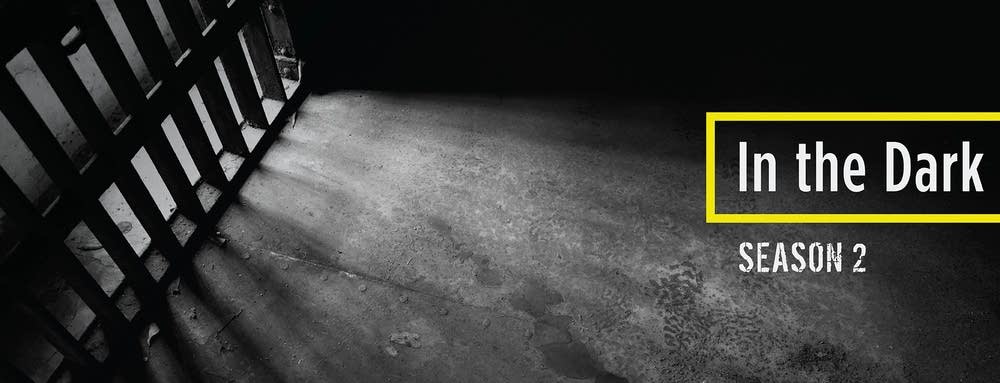The rise and reign of Doug Evans
How to spend nearly three decades in office.

When Doug Evans first ran to be the chief prosecutor of Mississippi's Fifth Circuit Court District in 1991, he was 38 years old. He'd grown up in the district and graduated high school there. He had studied criminal justice at a college just an hour away. In campaign ads, he showcased his decade in law enforcement, and his wife and two teenage kids.

The local bar association endorsed him as a "fine Christian man with unquestioned integrity." In his seven years as a lawyer, he'd worked in private practice, served as a judge in a misdemeanor court and been an assistant district attorney.
In 1991, he campaigned against his former boss, incumbent Ed Snyder. The men both ran as Democrats. It's a novelty of Mississippi politics that, even today, conservative candidates still run in local elections as Democrats, the party of the Old South.
Fulfilling another political tradition of the Old South, both Evans and Snyder stumped at the Black Hawk Political Rally, a gathering sponsored by the Council of Conservative Citizens, a white nationalist organization that's been designated a hate group by the Southern Poverty Law Center. The rally was a fundraiser for the Black Hawk Bus Association, which shuttled white kids from rural Carroll County to a private academy founded the same year the local public school was integrated by court order.
Evans ran on a tough-on-crime message. He promised to work tirelessly to indict and convict criminals. He said local youth needed to understand the dangers of drugs and that victims of crime should be treated with compassion. In campaign ads, he branded himself as "fair but firm."

Snyder was politically vulnerable. He'd crossed some of his constituents by prosecuting a well-connected woman for her husband's murder which, years earlier, had been ruled a suicide. Snyder's father, a state commissioner, had also recently been convicted on federal extortion charges and sent to prison.
In a hard-fought Democratic primary, Evans just edged out Snyder. The race was only decided after a recount. But Evans had an easy path to victory in the general election, where he faced no Republican opponent. And for the next 12 years, he held the DA's office uncontested.

In 2003, an attorney named Taylor Tucker, from the other side of the judicial district, finally challenged Evans. Tucker ran as a Republican on an anti-establishment platform.
"There's a system that's gone on for years and years and it's based on friendship, authority and money and cannot get out of that mold," Tucker said recently. "Those people have controlled for so many years that they're just not wanting to give up control. I was born and raised here. I felt that there was a possibility that we could change the system from within."
Tucker didn't even win his home county. Doug Evans took the seven-county district with 68 percent of the vote. He has never faced another challenger.
This isn't out of the ordinary. In a 2009 study, Wake Forest University law professor Ronald Wright collected data on prosecutorial elections in 10 states. He found that 85 percent of incumbent candidates ran unopposed. There are strong disincentives to would-be challengers. It's hard to unseat an incumbent DA (they win 69 percent of the races in which they have an opponent, according to Wright's data) and there's professional risk in trying to take down a powerful attorney in one's own community.
Wright's conclusion about prosecutorial elections? "They don't work. They just aren't very good methods of accountability," he said.

Most prosecutors around the world are appointed. America is the only country that elects them. Mississippi was the very first state to start doing so, in 1832, and all but four states followed. The idea was to end patronage postings and make prosecutors more responsive to local citizens.
"What we care about with elections is that you've got to go out there and explain to people what your platform is and what your policies have been and why they're good for us," Wright said. But in practice, this doesn't happen. "They never have to run. They're on the ballot, but they never have to go out and tell their story."
Short of listening to a stump speech, it's difficult for voters to appraise the performance of their district attorneys. Criminal prosecutions leave an enormous paper trail, but the records are difficult to access, even harder to parse and costly to obtain.
In an analysis of local news stories run in the year leading up to prosecutorial elections, Wright found that "whatever case was on the local television news or in the local newspaper, win or lose, that's the case that people were talking about during campaign events. ... Nothing about the big policies." This might help explain why Doug Evans has fought so hard to win a conviction in the Curtis Flowers case.
An elected district attorney cannot be fired. He is accountable only to the voters of his district, though they have little recourse if his name is the only one on the ballot. If Evans runs again and wins, he could hold office for more than 30 years. He is up for re-election in November 2019.

